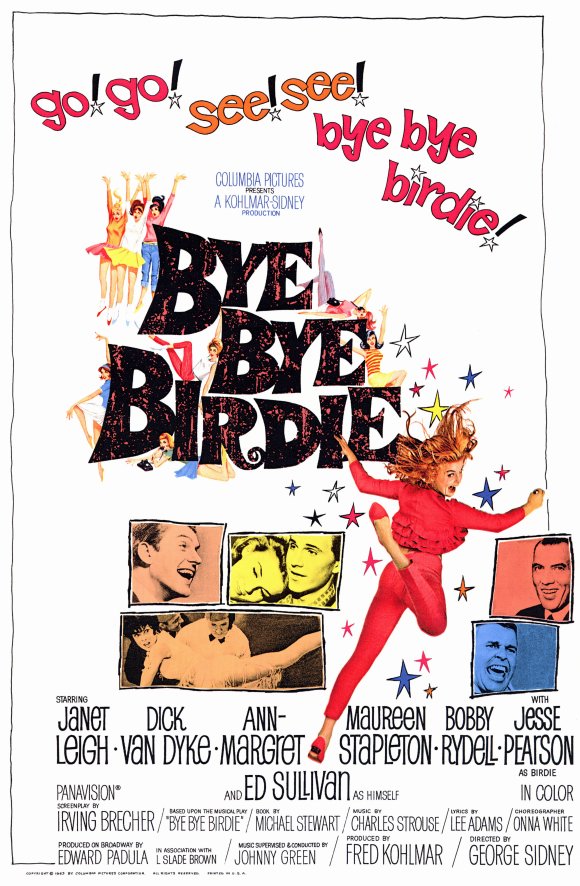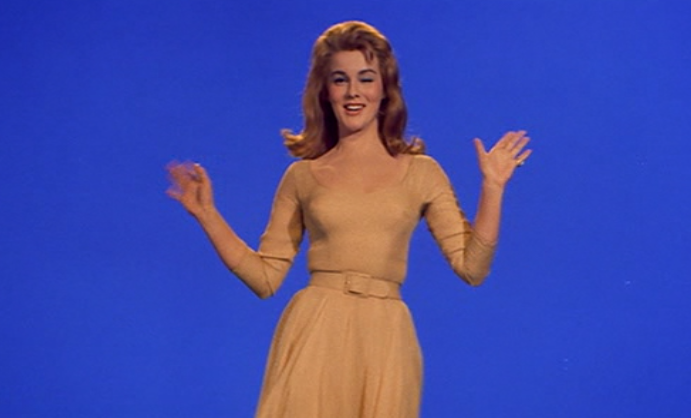Our Centennial celebration of director George Sidney continues with Jose on Bye Bye Birdie

George Sidney’s adaptation of the Tony award winning musical Bye Bye Birdie continued showing his prowess when it came to making big, bold, Technicolor musicals. The plot imagines the frenzy surrounding the imminent departure of an Elvis-like superstar, who receives his draft notice, but decides to reward one of his biggest fans with one gift before leaving: a televised kiss. Though the plot’s depiction of how the media thrives on scandals surrounding celebrities was rather prescient (not to mention how it predicts how love and sex would become “prizes” on reality shows) its gender and racial politics have made it one of the most icky musicals of the era.
Its casting proved significant for two reasons: for the big part of Kim MacAfee, the director chose a complete unknown he discovered dancing in a Las Vegas casino. After being selected out of millions, just like Kim, Ann-Margret would go on to become one of the biggest stars of the decade.

In fact just a year after Birdie, Sidney cast her opposite the real life Elvis in Viva Las Vegas -- perhaps as a tribute to how he discovered her and also to Birdie?...
Ann-Margret is not only beautiful in the film, but also aces every single number she is given. It's no wonder Don Draper would become so obsessed with her on Mad Men. She is bewitching. The opening scene which features the title song, which was composed for the film version, knows the effect she will cast on its audience. Sidney simply placed her against a blue background and let her voice, sensual movements and appeal take hold of audiences.

Sidney's risky casting was a such a success, that Ann-Margret's co-star Janet Leigh (who was also a much bigger star) was afraid she was getting snubbed in favor of the newcomer. Leigh plays the other female lead, Rosie DeLeon, and her casting proved signifcant for less successful reasons.

As lovely as she is, and hoenstly few actors were as charismatic as Leigh, she was cast due to her stardom, and ethnicity, to play a Latina character. Onstage Rosie had been played by the legendary Chita Rivera, who was a success on Broadway, but seemed to have no luck having her characters transfer to the screen. Just a few years before Birdie, her biggest stage character to date, Anita in West Side Story, had won Rita Moreno the Best Supporting Actress Oscar. Rosie (named Rose Alvarez in the stage version) is also an example of the ultimate passive female character, who waits for a man to make up his mind about finally proposing to her, and seems unaware of her power. Fortunately, the filmmakers were smart enough to remove the insensitive number "Spanish Rose", which potentially would've had Leigh passing as Latina singing about being a "hot tamale". Sigh. At least we'll always have that perfect opening number.